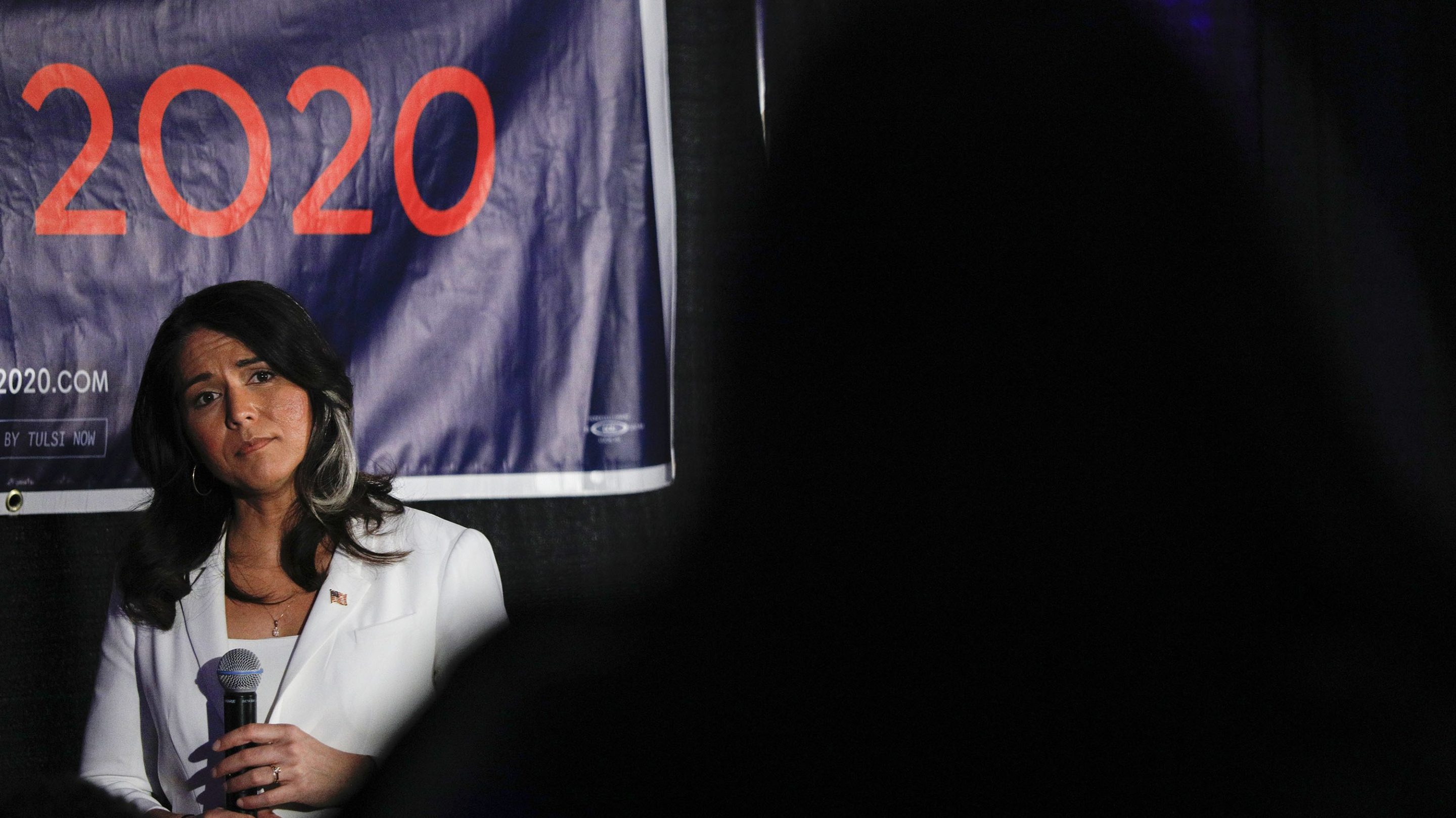On Thursday, U.S. Rep. Tulsi Gabbard (Hawaii) and Rep. Markwayne Mullin (Okla.) introduced a bill to Congress. The proposal was so fresh, so right off the presses, as the saying goes, that as I'm writing this post, the full text still isn't available on Congress' official website. Despite the full language still being unavailable to the public, Gabbard's staff blasted out a press release Thursday night, and a local reporter in Gabbard's home state sent out a screenshot of part of the legislation. The content of the proposal doesn't matter so much, because you've seen and heard its like before. What mattered was the right-wing anger that Gabbard and Mullin wanted to stir up.
The bill—according to the press release—allegedly seeks to limit the protections of Title IX to only certain women in collegiate sports, in this case to people assigned the female sex at birth, and to deny federal funding from universities that violate it. Title IX is federal legislation, passed in 1972, that says educational institutions cannot discriminate based on sex. The Supreme Court later ruled that the protections extend to gender discrimination as well. It's a law that Americans should be proud of for many reasons, and one of its signature accomplishments is the way it gave more women access to collegiate sports. Why is the United States a women's soccer powerhouse? Why is the United States a powerhouse in, frankly, a lot of women's sports? You can thank Title IX for that.
But those who study the history of women's sports know that for as long as women have sought access to athletics, there have been others seizing on it as a chance to police our bodies. The Olympics spent its early decades allowing women to compete only in the sports its all-male leadership deemed feminine enough, like tennis, figure skating, and fencing. At least those early Olympic leaders stated plainly why. From Olympics founder Pierre de Coubertin: "I personally do not approve of the participation of women in public competitions, which is not to say that they must abstain from practising a great number of sports, provided they do not make a public spectacle of themselves. In the Olympic Games, as in the contests of former times, their primary role should be to crown the victors.”
Other events opened up only after women organized and created their own Women's World Games; it was fear of competition, not a sudden adoption of pro-woman values, that forced the Olympics to concede. But with more women in the Olympic movement came new ways to police our bodies: gender testing; nude parades; chromosome tests; the ongoing targeted attacks against South African runner Caster Semenya. The excuses change, but the lie remains the same: Under the guise of "protecting women," those with power want to limit those who have access to the platforms that sports provide, which conveniently is another way of retaining their own power.
Because these proposals are not about protecting women—and let's be clear, they are not about protecting women and they do not make women safer—what they are about is stirring up right-wing voters. It's no coincidence that Republican Kelly Loeffler, now facing a runoff in Georgia to keep her U.S. Senate seat, introduced a similar bill earlier this year. Mullin is an Oklahoma Republican. Gabbard is a Democrat, but one with admirers on the right, who lent fuel to her brief presidential campaign. She also has used anti-gay rhetoric in the past.
Whether or not these proposals pass isn't the point. The point is that a lot of right-wing voters have, for years, been fed lies and fear-mongering about trans people, and these bills are meant to turn that unfounded fear into votes. The Republican Party deployed the same strategy in 2004, using state-level constitutional amendments to ban gay marriage to turn out voters for President George W. Bush's re-election campaign. It worked.
The gay-marriage bans fell by the wayside, and these anti-trans bills, hopefully, will meet a similar fate, something everyone shakes their head over as they remember what an ignorant time we lived in. In a better world, this legislation wouldn't be filed at all. It's self-congratulatory discrimination. It's anti–trans rights, which makes it anti–women's rights, which makes it anti–human rights. In a better world, there would be shame in using the suggestion that one group of human beings deserve fewer rights than others in order to turn out voters. But since when has shame existed in American politics?






